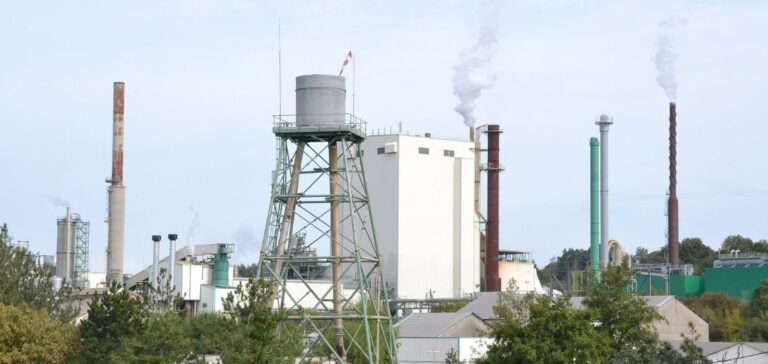Verso Energy and Sylvamo have signed a memorandum of understanding to evaluate the recovery of biogenic CO2 produced by the pulp and paper mill, combined with green hydrogen, to produce a synthetic fuel called eSAF. This project could boost local industrial and energy competitiveness. The project is also helping to reduce greenhouse gas emissions, demonstrating that private companies in France are playing a key role in the government’s ecological transition.
A strategic collaboration for the industry
The heads of both companies emphasize the importance of this project for the development of the French sustainable fuels industry. Antoine Huard, CEO and co-founder of Verso Energy, said: “The valorization of this large deposit of biogenic CO2 will contribute to the deployment of a French sustainable fuel production industry.” Oliver Taudien, Vice President and General Manager of Sylvamo Europe, added: “We are interested in the concept proposed by Verso Energy of transforming biogenic carbon dioxide into sustainable aviation fuel.”
Verso Energy: a key player in the energy transition
Founded in 2021 by Xavier Caïtucoli and Antoine Huard, Verso Energy is backed by Eiffel Investment Group, AMS Capital and Crescendix. The company focuses on the development and operation of renewable energy projects, decarbonated hydrogen production and synthetic fuels. If the feasibility study is conclusive, Verso Energy plans to launch construction of the industrial site in 2029, once it has obtained the necessary permits and financing.
Economic and industrial impacts of the project
Completion of this project would enable Sylvamo to become a key supplier to Verso Energy without affecting its current pulp and paper production. This initiative could boost the region’s industrial competitiveness, while creating new opportunities for employment and economic development.
This project by Verso Energy and Sylvamo represents a significant step forward for the energy industry. By combining biogenic CO2 and green hydrogen, it offers an innovative solution for producing sustainable aviation fuel. This strategic collaboration underlines the importance of innovation and cooperation in achieving ambitious industrial and economic goals.






















